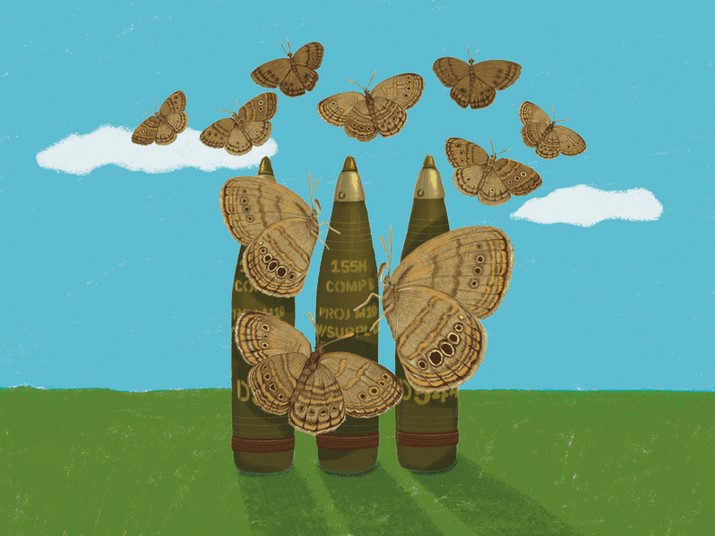The largest population of endangered St. Francis’ Satyr butterflies lives in a seemingly inhospitable environment: wetlands in the middle of active artillery ranges at Fort Bragg, North Carolina.
But as ecologist and KBS Long-term Ecological Research Director Nick Haddad explained on a recent episode of the podcast Radiolab—as well as in his book, The Last Butterflies—the butterflies there don’t thrive in spite of the fiery military exercises conducted there. They thrive because of them.
Check out the Of Bombs and Butterflies Radiolab episode.


A legacy of conservation; a commitment to sustainability.
3700 E. Gull Lake Drive
Hickory Corners, MI 49060
(269) 671-5117
info@kbs.msu.edu